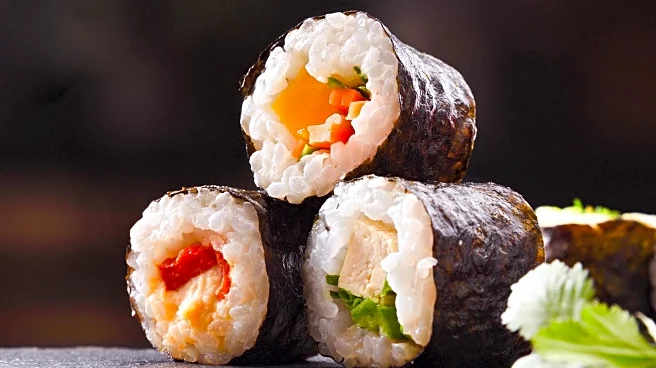What's Happening?
Shogun Sushi, a local Japanese restaurant, is celebrating the Halloween season by introducing a special pumpkin patch appetizer. The restaurant is known for its creative culinary offerings and is now adding
a festive twist to its menu to attract customers during the spooky season. This initiative is part of a broader trend where eateries are incorporating seasonal themes to enhance customer experience and engagement.
Why It's Important?
The introduction of Halloween-themed menu items at Shogun Sushi highlights the growing trend of restaurants leveraging seasonal events to boost business. This approach not only attracts more customers but also enhances the dining experience by offering unique and memorable dishes. Seasonal marketing strategies can significantly impact restaurant sales, especially during holiday periods when consumer spending typically increases. By participating in this trend, Shogun Sushi is positioning itself as a creative and customer-focused establishment, potentially increasing its market share in the competitive food industry.
What's Next?
As Halloween approaches, Shogun Sushi may continue to innovate its menu with additional themed items to maintain customer interest. Other restaurants might follow suit, introducing their own seasonal offerings to capitalize on the festive spirit. This could lead to increased competition among local eateries, each striving to offer the most appealing and unique dining experiences. Additionally, customer feedback on these seasonal items could influence future menu decisions, encouraging restaurants to explore new culinary trends and themes.
Beyond the Headlines
The move by Shogun Sushi to embrace Halloween themes reflects a broader cultural shift towards experiential dining. Consumers are increasingly seeking not just food, but an immersive experience that aligns with their lifestyle and interests. This trend could lead to more restaurants adopting similar strategies, integrating cultural and seasonal elements into their offerings. Such developments may also influence culinary education and training, as chefs and restaurateurs adapt to changing consumer preferences.











